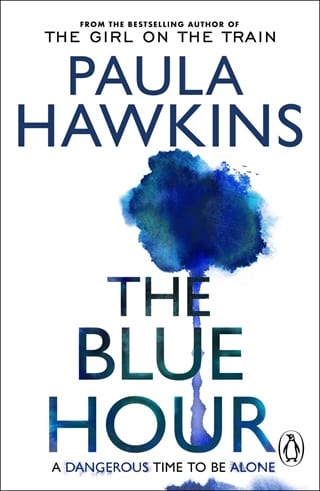Chapter 4
4
Becker is listening to the radio in the car; they're talking about Daphne du Maurier.
Three people, a presenter and two panellists, one of whom is a woman and one a man, are discussing a lurid new biography of the writer that hints at an inappropriate relationship with her father.
An abusive relationship, the woman says.
An incestuous one, the man says, we don't know for certain there was coercion.
This relationship is alleged to have happened before du Maurier reached the age of sixteen, so necessarily it was abusive, the woman replies hotly. Children cannot consent.
Indeed, the presenter says. Why is it, he rushes on, trying to move the discussion to safer ground, that we are so interested in the private lives of artists, do you think? People seem to cleave to this idea that what a writer puts on the page must be drawn from experience, so the suggestion here, then, is that this … relationship , this situation between du Maurier and her father, somehow informed her books, most notably Rebecca .
This particularly happens with female writers, the woman says. Critics seem incapable of attributing to a woman a capacity for invention, they—
Oh, come on, the man says. Not everything is about sexism, Marjorie.
Not everything , no, I didn't say everything, and if you'd let me finish my sentence you—
Becker turns the radio off.
The road has been climbing for a while; he has reached the top of the pass. He rounds one final bend and before him unfurls a valley painted in shades of green and bronze and copper, steep-sided. To his left the land falls away, down to flashes of steel where water cuts through the bracken. On the right there is a deer fence, and on three fence posts in a row sit crows, onyx and menacing, watching him pass.
The Birds , he thinks, might have come out of a landscape like this. Not the film, warmed up by northern California light and the luminous beauty of Tippi Hedren, but the original du Maurier story, bleak and terrifying and tragic. A prickle inches up his spine. He opens and closes his hands a few times, trying to relax his grip on the steering wheel.
He keeps thinking about that scene with Emmeline, out in the garden. Helena wouldn't talk to him about it. Nothing , she said, it was nothing . It didn't look like nothing, Becker said, and Helena shook her head and smiled and said, OK, well, it's the same old thing. ‘Just forget about it,' she said. ‘I have. She's old, she's grieving, she's not all that well. She's nothing to worry about.'
He keeps replaying that conversation in the office, too – Sebastian slapping him down – don't try to be clever . Sebastian! That prep school, Eton and Oxford dimwit treating him like an idiot! Sebastian, who knows nothing about anything, who has the attention span of a gnat, who chases after Hirsts and Banksys and whatever else happens to be fashionable and expensive. Who is tall and handsome and rich. Who had Helena first.
Becker despises himself for letting the thought cross his mind, he despises himself for badmouthing Sebastian, even if it is just in his imagination. Sebastian has been good to him – very good under the circumstances.
He's unnerved, that's all it is; he doesn't like leaving Helena alone. Not because he's jealous, not because he doesn't trust her. He's just anxious, he can't help himself. He's been anxious ever since she told him she was pregnant, and she's almost seven months gone now.
It doesn't help that she's so disarmingly relaxed. She drinks wine ( I'm half-French, you know ) and dances at parties in four-inch heels; the other day he caught her loading a slab of blue cheese on to a cracker and almost had to slap it out of her hand. Helena has not read a single book about pregnancy, she has not watched any YouTube videos featuring women in labour. She has no birthing plan.
He, on the other hand, has driven from their house on the estate to the nearest hospital half a dozen times. He has experimented with different routes, he has even investigated the next closest hospital, a further sixty miles south. Just in case. ‘In case of what?' Helena asked when he told her. ‘In case the hospital is closed ?'
He's tense because he's worried about her, that's all. And because he isn't sleeping. He can't: she snores now, and radiates heat. He lies at her side, helpless, his skin itching, lovelorn, terrified. What if something goes wrong? What if she changes her mind? What if she realizes this is all a terrible mistake?
What if he gets what he deserves?
 Fullepub
Fullepub 



